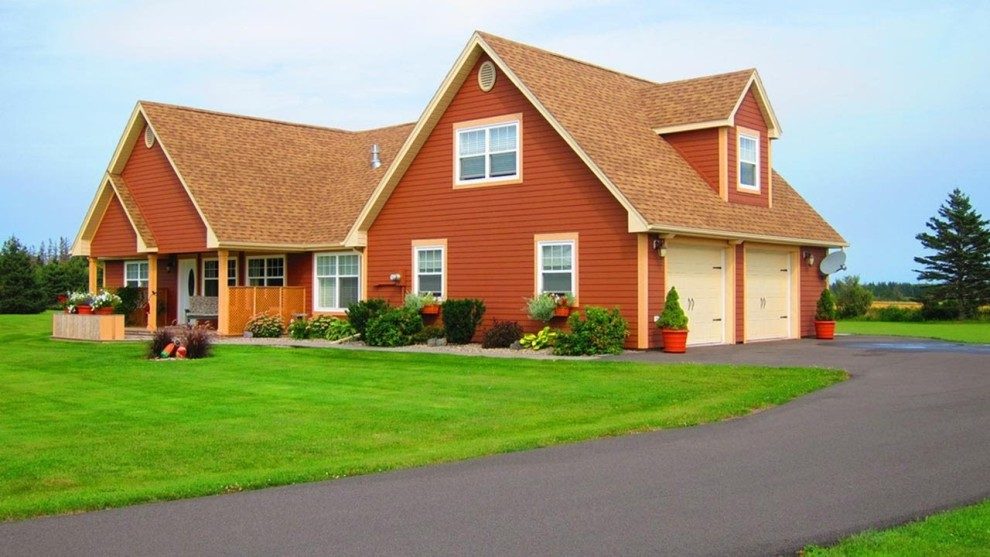There’s no doubt that property is one of the best investments out there right now. The current economy means that there have never been more people trying to rent homes. Of course, there are still plenty of things that can get in the way of your ability to create your real estate empire. The most obvious of all of those things is, of course, cost. Let’s be totally honest; there’s nothing particularly cheap about buying property. No matter what you do, real estate is always going to represent a fairly significant, and potentially long-term, investment. After all, a great deal of the rent that you charge is going to go simply to covering your mortgage costs unless you were in the very fortunate position to be able to buy the property outright.
So what can you do if you want to get your foot in the door of property investment but don’t have quite as much capital to spare as you would like? The answer is actually pretty obvious: look for cheaper properties. Of course, it’s not quite that simple. If property investment were that easy, then everyone would be doing it! There are a lot of trade-offs that come with buying a cheaper property that you need to be aware of. A lot of the time the factors that influence the price of the property are also going to make a big difference to your ability to find tenants and how much rent you can charge. Things like the location and condition of the property are going to make it far cheaper, certainly, but it’s going to be that much harder to find tenants if there’s paint peeling off the walls and damp on the ceiling.
Fortunately, all hope is not lost! Cheap properties can, in fact, be incredibly lucrative investment opportunities, you’ve just go to know what to do with them. Here are five things that you should consider in order to turn even the cheapest property into a profit.
Safety
Your first priority when getting any property ready for tenants should always be safety. No matter how nice a property may look, if it’s not actually safe to live in, then it’s not fit for anyone. Not only would this make it extremely difficult to find tenants but it could also make the property very dangerous to anyone in it, potentially leading to some serious legal trouble for you. Make sure that the property meets all gas, fire and electrical safety checks. There are also plenty of services from Schemel Tarrillion that can check over things like lead abatement and mold removal.
It’s a good idea to have an independent surveyor check it over for you before you start advertising to tenants so that you can make absolutely sure that it’s safe enough for people to live in.
Design
Once you’re sure that the property is completely safe, then the next thing that you need to focus on is the way that it looks. Even when someone is renting, a property should be more than just a blank space where they sleep at night. Any tenant who lives in your property should feel comfortable and at home there. Not only that but a well appointed and designed property will make it much easier to find tenants who actually want to rent it.
Look at the kind of property it is. One of the best ways to find design inspiration is to look at the property itself and base the decor around it. If it’s a Victorian house, then that will impact the kind of design choices that you use compared to if it’s something like an urban loft space. Being able to channel the feeling of the property itself is a great way to way potential tenants right of the bat.
You should then decide whether it’s going to be furnished or unfurnished. Furnished it potentially going to require a little more cost to you but can often be worth it if you’re looking to find tenants more quickly. If you do decide to offer the property furnished then make sure that you use a consistent style of design throughout to give the home a sense of cohesion. If you choose to offer it unfurnished, then make sure that the property itself has enough personality to make an impact on potential tenants anyway.
The garden
A garden is becoming more and more of a selling point for many tenants. Even in urban areas, there’s an increased demand for at least some degree of outdoor space. If you manage to find a cheap property that also has some yard space then that greatly opens up the possibility for increasing the value of your investment.
First of all, make sure that the garden is secure. There should be fences on all sides that are high enough so that the adjacent gardens can’t see into it. Then you need to make sure that it actually looks presentable. You may need to just mow the lawn in the garden, or it might have been so neglected that you need to lay it all over again. It’s important to pull up and kill any weeds that have sprung up, and it’s even worth going out of your way to plant different things like flowers throughout the garden itself. They might not bloom before you start trying to occupy the property but the promise of life and growth in the yard can be a big selling point for a property.
Price
This is going to be one of the more difficult things to figure out since the cost was such a large factor, to begin with. There’s a temptation to assume that because you bought the property at a very low price that you’re going to inevitably have to offer similarly low rental rates. Of course, there’s always going to be a correlation between what you pay and what you charge, but if you’ve put the right amount of effort into the property, then you’re still going to be able to charge a pretty competitive and profitable rate.
The mistake you don’t want to make is pricing yourself out of the market altogether. There’s no money to be made by undercharging your tenants, but the same goes for a property that no one actually wants to rent at all. Look at the area the property is in and be realistic about what rate of rent you’re going to charge. Speak to your agent or an independent advisor. It’s actually a good idea to do this before you ever put any money down on the property. That way you can carefully calculate exactly what you need to charge in order to turn a profit at all. The key is to strike a decent balance and find a price that is going to make your investment worthwhile but is also something that tenants can realistically afford.
The right tenant
Speaking of tenants, it’s ironic that, for many landlords, they can be something of an afterthought. Far too often landlords see tenants as nothing more than the rent payment that comes in every month. But there’s a big difference between the right tenant and the wrong tenant.
The right tenant can make the entire experience feel like a breeze. They pay their rent on time, let you know straight away if there are any issues with the property, and generally take as much care of their new home as possible. The wrong tenant can turn your life into a waking nightmare. You could end up spending all of your time chasing them for rental payments, they treat the property terribly and then call you out to fix major problems that could have been dealt with a long time before. You really would be amazed at just how much difference the kind of tenant you choose can have on your maintenance costs.
The key is to figure out what kind of tenant a person is going to be. The best way to do this is actually to meet them face to face. Far too often, landlords never know their tenants as anything more than a name and number on a piece of paper. By actually meeting them then you get a much clearer image of the kind of people they are. You should also conduct thorough checks on them. Your agent will, of course, conduct a credit check, but it’s a good idea to get a reference from a previous landlord as well. You can never be quite sure if someone is completely honest with you, so the best way to know what they’re like as a tenant is to ask the last person they rented from.
There’s nothing wrong with being picky about your tenants, this is your investment, and it’s important to you. Be selective if you need do, don’t settle for someone you’re not really sure about for the sake of getting the property occupied as quickly as possible. It might seem like a good idea at the time, but when you’re being woken up to deal with things at three in the morning every other day, you’re going to wish you’d waited just a little bit longer.











Add Comment